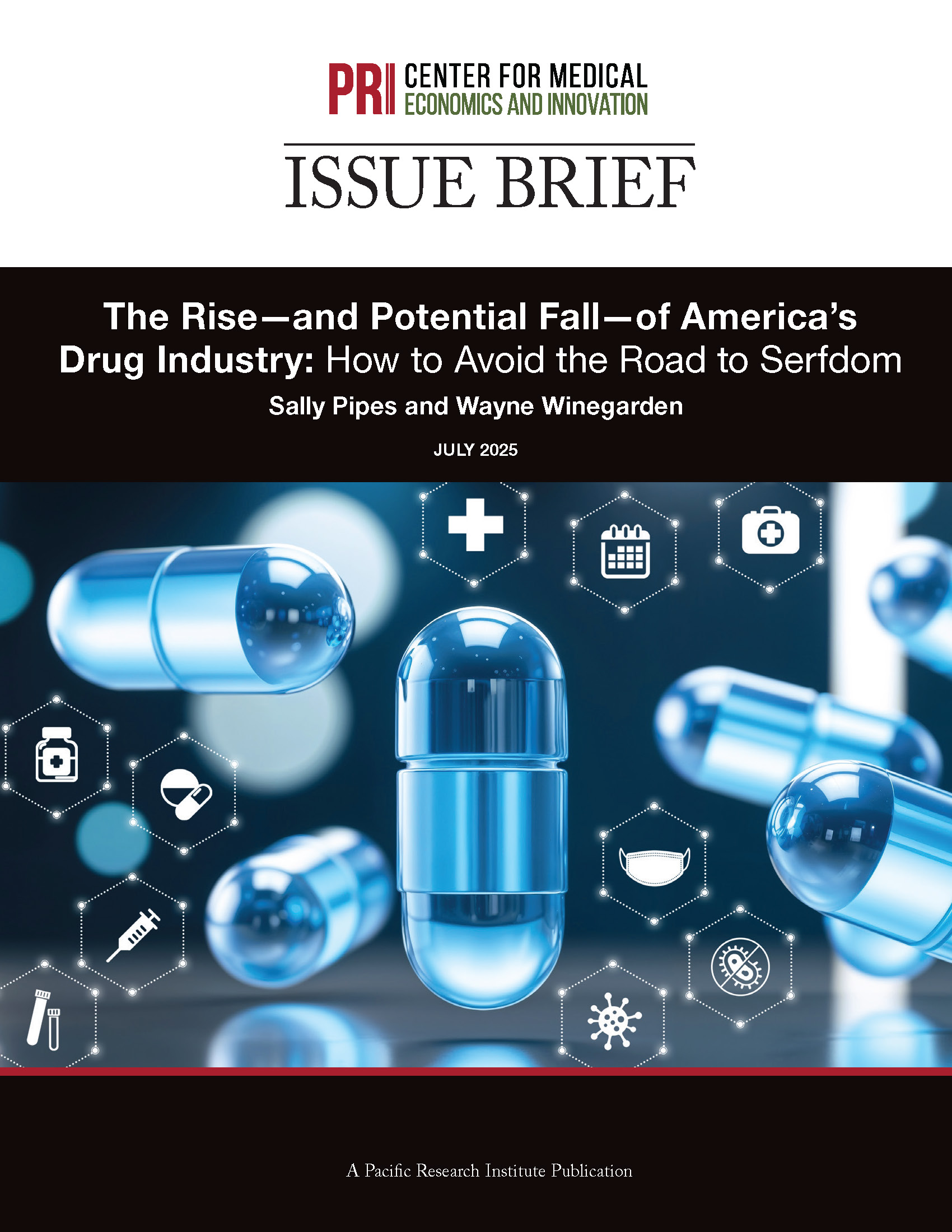SACRAMENTO – The Center for Medical Economics and Innovation at the Pacific Research Institute – a nonpartisan, California-based, free market think tank – today released a new issue brief warning that efforts by the Trump administration and some Republicans in Congress to embrace and expand the government price controls on prescription drugs – first introduced under the Inflation Reduction Act and signed into law by President Biden in August 2022 – would deal a major blow to American pharmaceutical innovation and patient access to cutting-edge medications.
Drawing from Friedrich Hayek’s famed warning about centralized economic planning, the brief cautions that free market supporters who endorse government price controls are embracing the same destructive socialist policies that destroyed Europe’s pharmaceutical leadership.
“It is the ultimate irony that some Republicans are sleepwalking into the kind of government-run health care programs long championed by European socialists that will harm American patients, and have since these policies were announced and passed in the Biden administration’s disastrous health care policy agenda.” said Sally C. Pipes, PRI President, CEO, and Thomas W. Smith Fellow in Health Care Policy and the brief’s co-author. “Government price-setting is not a market-based solution—it’s a recipe for innovation collapse, longer waits, and reduced access to lifesaving drugs.”
The report shows how the price control provisions in the Inflation Reduction Act, which are set to begin for 10 drugs under Medicare Part D on January 1, 2026, are already having devastating effects. Since the law’s passage, 51 research programs have been shut down and 26 drugs have been discontinued, according to Incubate, a coalition of early-stage biotech investors. Late-stage clinical trials for small-molecule drugs have dropped by 47 percent, and early-stage funding for those treatments has plummeted by 70 percent.
“The data are clear: the U.S. biopharmaceutical sector is beginning to mimic the failures of European systems, where patients wait an average of 19 months to access new drugs, and drug shortages are common,” said Dr. Wayne Winegarden, director of PRI’s Center for Medical Economics and Innovation and the study’s co-author. “By embracing price controls, we’re jeopardizing Americans’ timely access to cutting-edge treatments—treatments we’ve come to expect as a matter of course in our free-market economy.”
The authors highlight the stark contrast between America’s free-market model—responsible for over 55% of global biopharmaceutical R&D and two-thirds of new drug launches—and Europe’s statist approach, which has resulted in just 15.8% of global sales from new medicines.
The issue brief concludes with a call for policymakers to reject the centralized planning model and reaffirm the market-based principles that have made the U.S. the world’s medicine chest. If not reversed, the authors say, the U.S. will be on “The Road To Serfdom” and there will be no off ramp.


